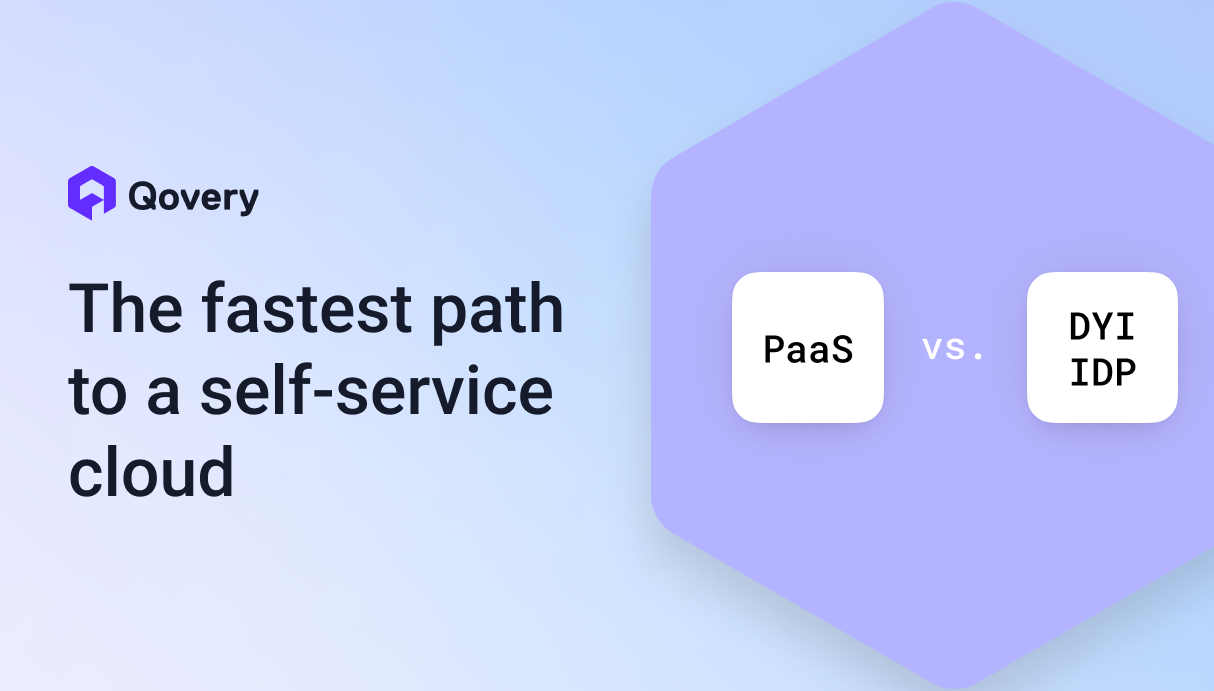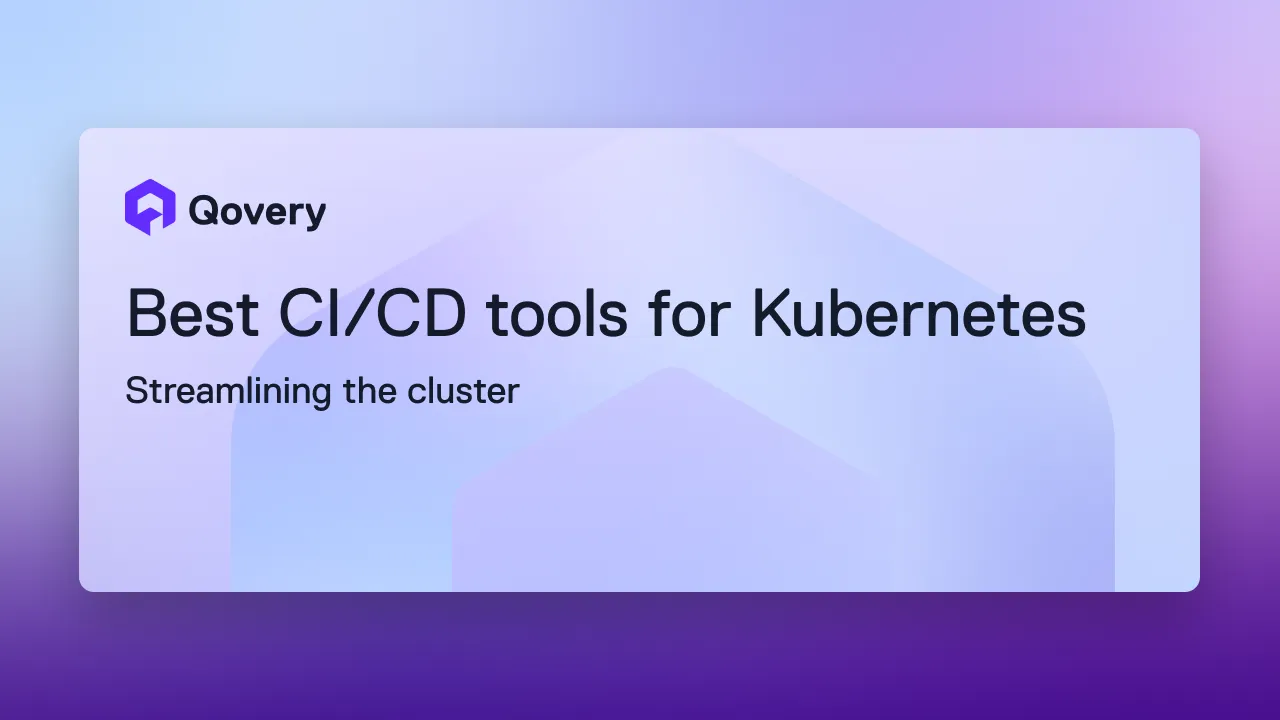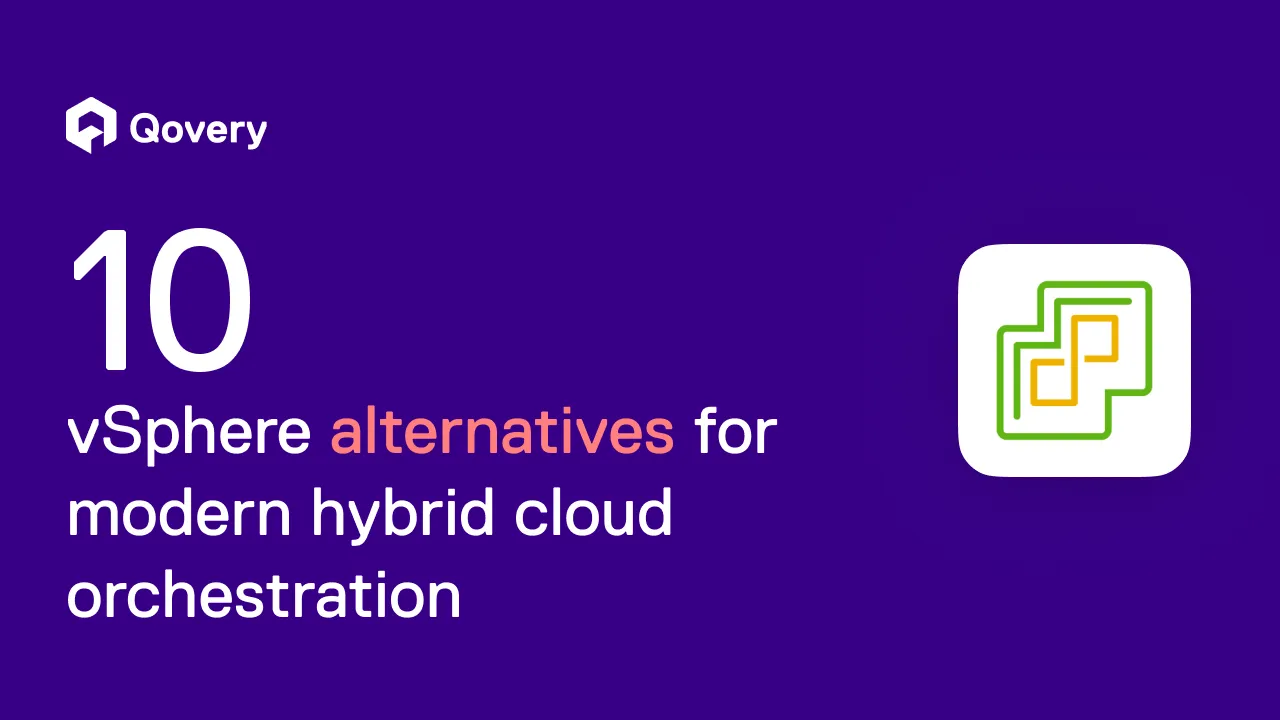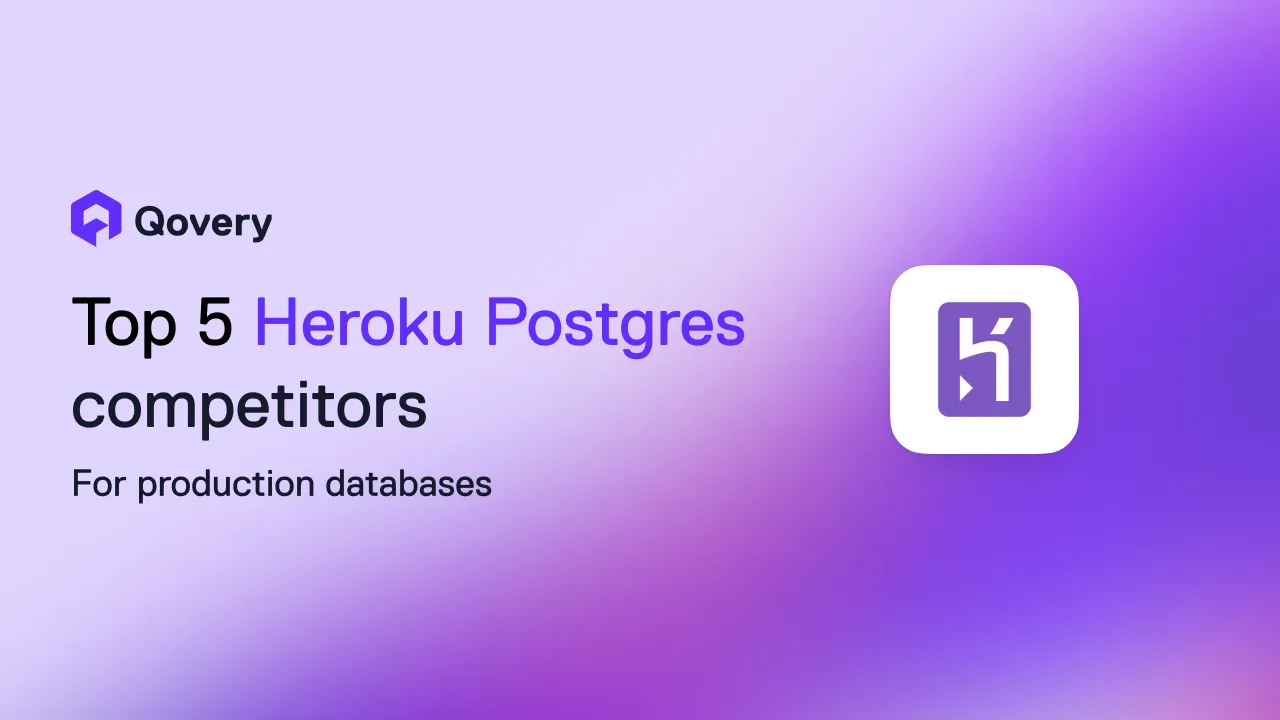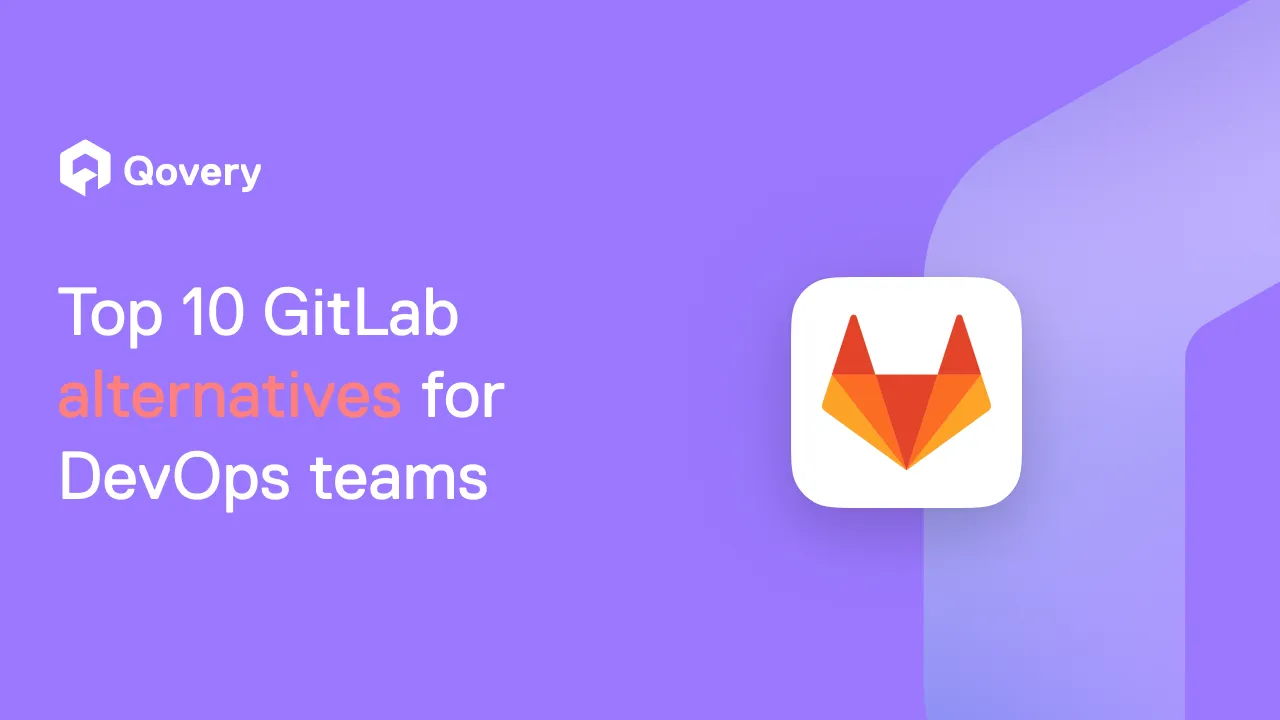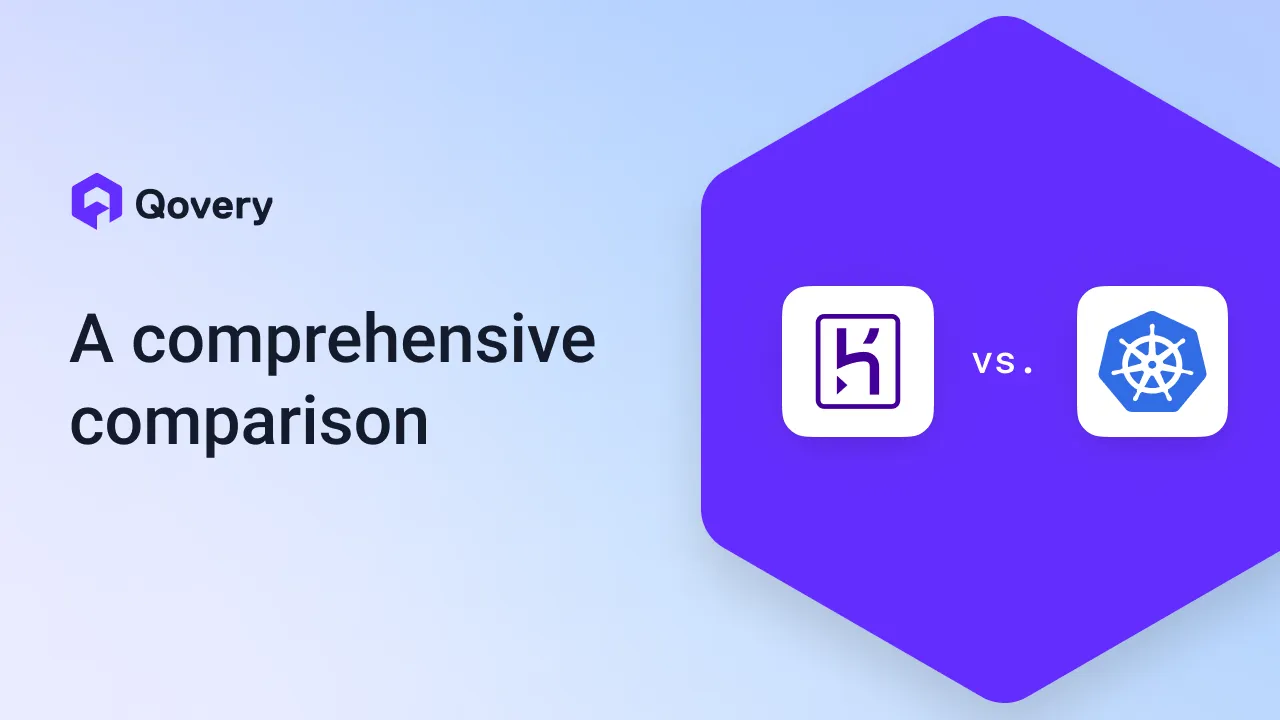

Top 5 Rancher Alternatives: Beyond Cluster Management - Get Simpler Multi-Cloud Control

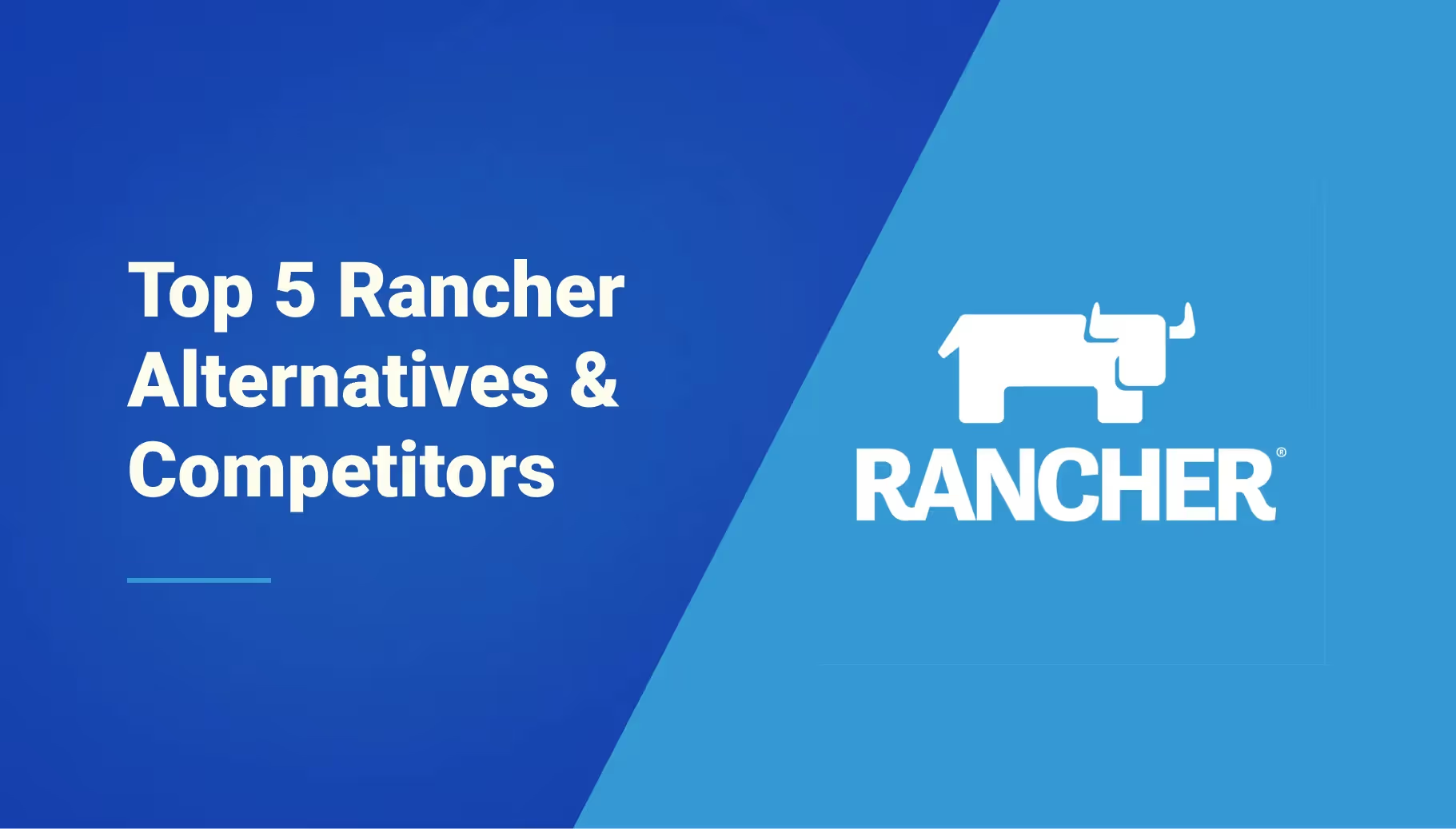

Key Points:
- Simplicity vs. Control: The primary distinction between Rancher and its competitors is the balance between ease of use and advanced control. Platforms like Qovery and Portainer are highlighted for their user-friendly interfaces, making them ideal for teams with limited Kubernetes experience. In contrast, Rancher is better suited for larger organizations that require a more extensive set of features and granular control over their infrastructure.
- Diverse Approaches to Container Orchestration: The alternatives offer different approaches to solving container management challenges. Some, like Platform9, provide a fully managed SaaS experience to reduce operational overhead, while Docker Swarm offers a simple, native solution for teams already in the Docker ecosystem. Nomad stands out for its flexibility in orchestrating both containerized and non-containerized applications across multiple environments.
- Specific Use Cases: Each alternative caters to specific needs. Qovery is positioned as a strong solution for small-to-medium businesses seeking a cost-effective, user-friendly platform. Portainer excels at making Docker and Kubernetes management accessible for smaller teams. Meanwhile, tools like Platform9 are tailored for organizations seeking a fully managed, cross-platform solution, and Nomad is a great choice for those needing simplicity and versatility beyond just containers.
The evolving landscape of container management has spurred the need for powerful alternatives to traditional platforms like Rancher. While Rancher is known for its comprehensive control, many teams, particularly those with less DevOps expertise, are seeking solutions that offer greater simplicity and ease of use.
This article evaluates five key competitors—Qovery, Portainer, Platform9, Docker Swarm, and Nomad. Each platform provides a unique approach to container orchestration and management, catering to different team sizes and technical requirements. This guide will help you understand their core differences, strengths, and weaknesses to make an informed decision for your cloud environment.
Top 5 Rancher Alternatives & Competitors
1. Qovery
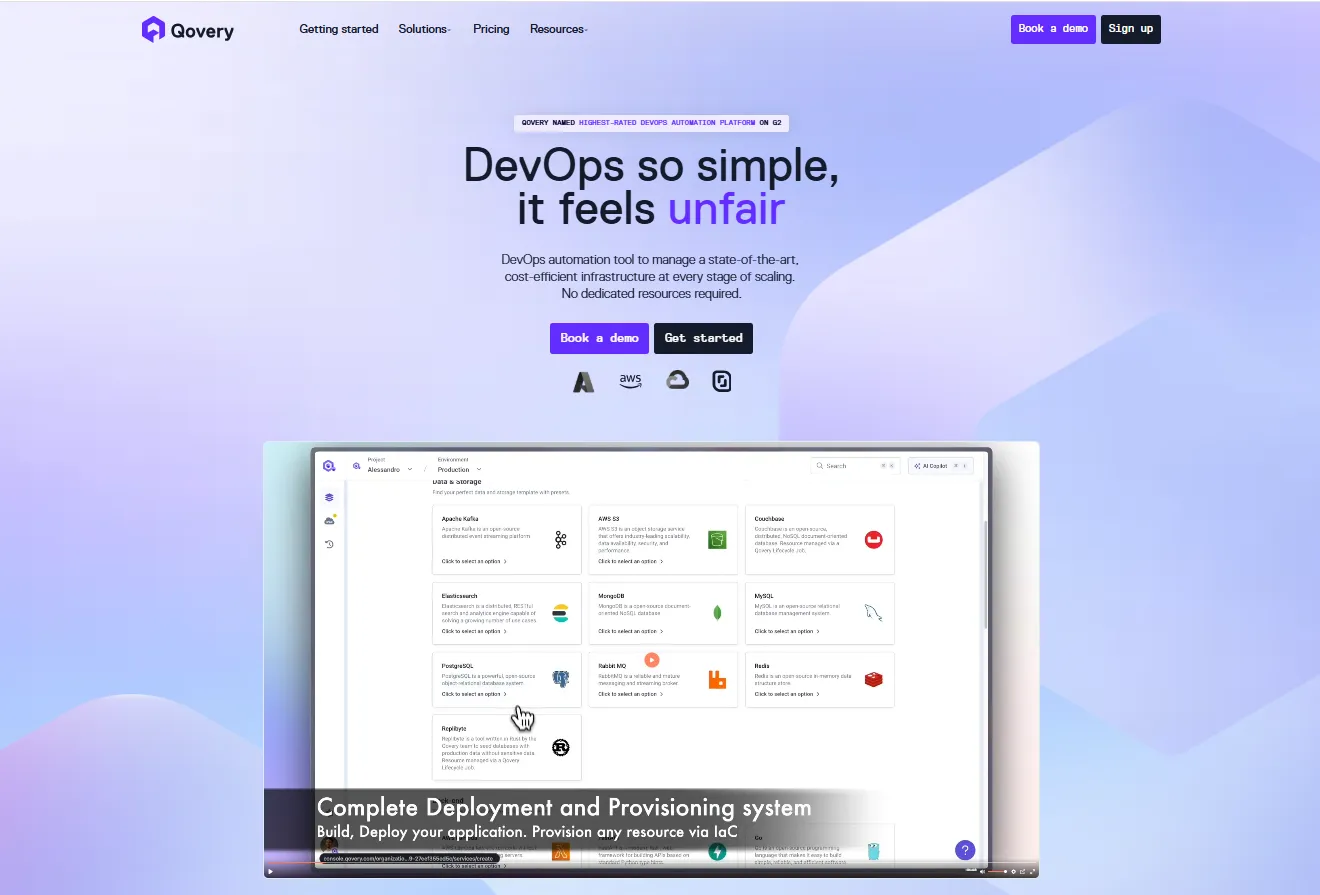
Qovery emerges as a strong alternative to Rancher in the Kubernetes and container management space. The platform is designed to simplify the deployment and management of applications, particularly in cloud environments. Qovery, distinct from Rancher, focuses on providing a user-friendly interface and seamless integration with major cloud providers.
When compared with Rancher, Qovery stands out for its simplicity and ease of use, especially for teams with limited Kubernetes experience. Rancher, on the other hand, offers more comprehensive control and advanced features, making it better suited for larger organizations with complex deployment requirements.
Pros:
- Simplicity and User-Friendly Interface: Qovery is known for its intuitive user interface, making it accessible even for those with limited DevOps experience. When it comes to Rancher, it might require a steeper learning curve for new users.
- Seamless Cloud Integration: It offers effortless integration with major cloud platforms, allowing users to manage and deploy applications without the complexity often associated with such tasks.
- Efficient Resource Management: Qovery provides efficient container and Kubernetes management, which can be particularly advantageous for small to medium-sized businesses looking for cost-effective solutions.
Cons:
- Potentially Limited Advanced Features: For enterprises with complex deployment needs, Qovery’s feature set might not be as extensive as Rancher's.
2. Portainer
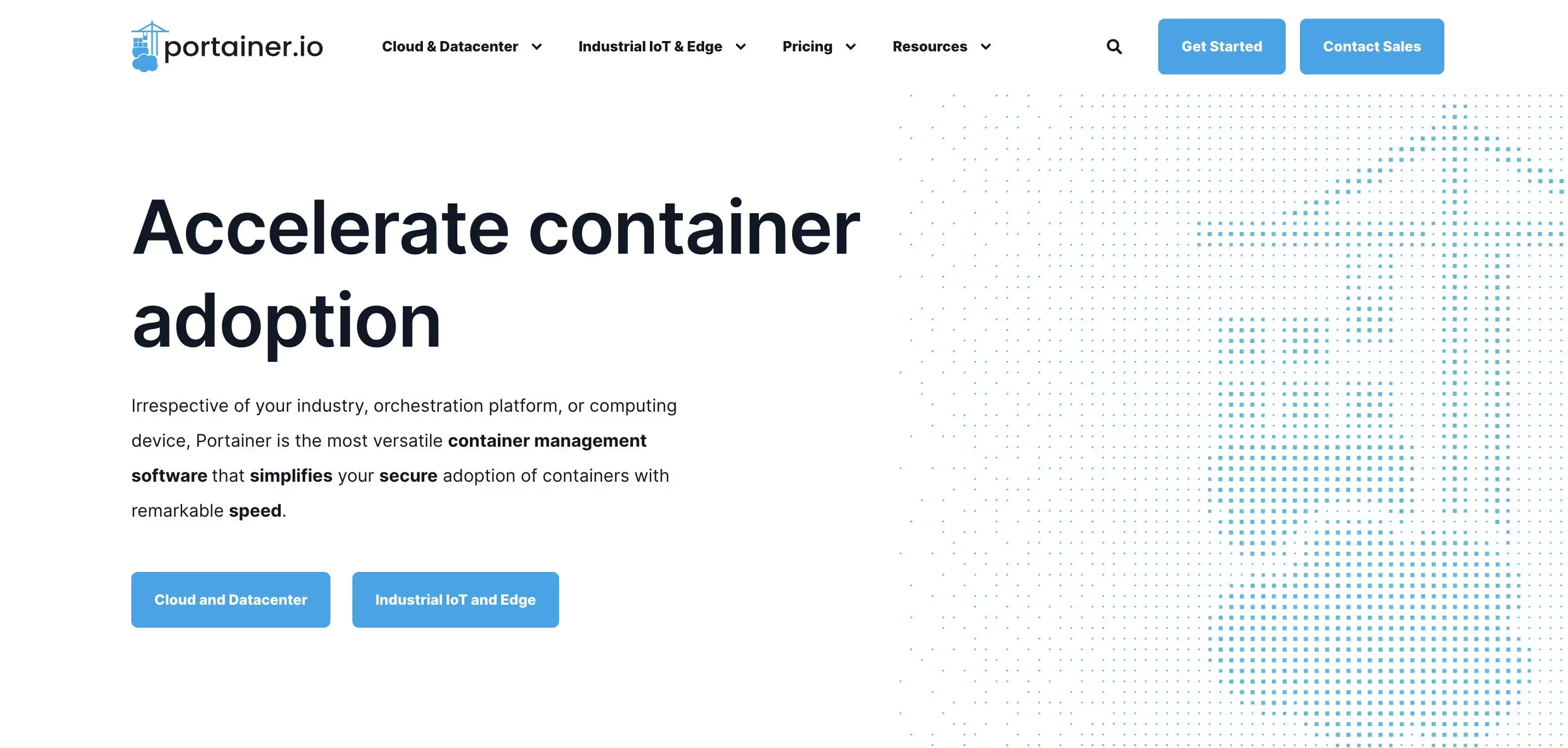
Portainer stands out in the world of cloud management, especially when compared with Rancher. It's a lightweight management UI that provides users with the ability to easily manage their Docker and Kubernetes environments. Portainer simplifies containerization, making it accessible even for those new to these technologies. It's a versatile tool, offering comprehensive features for managing containers, deploying applications, and ensuring security.
Portainer sets itself apart from Rancher with its exceptionally user-friendly interface and simplified approach to container management. While Rancher offers robust tools for large-scale operations, Portainer excels in making Docker and Kubernetes management more accessible, especially for smaller teams or those new to containerization.
Pros:
- User-Friendly interface: Portainer's intuitive dashboard makes it easy to manage Docker and Kubernetes environments, making container management more accessible.
- Enhanced control and visibility: Offers detailed insights into container and application performance.
- Versatility: Supports both Docker and Kubernetes, providing flexibility in choosing containerization platforms.
- Robust security features: Includes robust security measures for managing and deploying containers securely.
Cons:
- Limited customization: Some users might find Portainer less customizable compared to Rancher in terms of advanced configurations.
- Scalability issues: In larger, more complex environments, Portainer might struggle with scalability compared to some of its competitors.
3. Platform9

Platform9 is an effective player in the Kubernetes world. Unlike Rancher, Platform9 delivers a unique SaaS-managed experience, simplifying Kubernetes operations. It offers a fully managed Kubernetes service that ensures consistent, secure, and scalable container orchestration across any infrastructure.
This platform is tailored for those looking for a cloud-native approach without the complexities often associated with Kubernetes deployments. With its straightforward deployment process, Platform9 ensures that applications run smoothly, bolstered by features focusing on simplicity, security, and support.
Pros:
- Ease of management: Platform9's managed service model significantly reduces the operational overhead associated with Kubernetes and container management.
- Cross-Platform compatibility: Offers seamless integration across various cloud and on-premise environments, providing flexibility for application deployment.
- Enhanced security: Robust security features are built into the platform, ensuring safe and secure application and container deployment.
- Scalability: Easily scales to support a growing number of containers and applications, making it a top choice for businesses expanding their cloud infrastructure.
- User-Friendly interface: The platform provides a straightforward and intuitive interface, which is a boon for users new to Kubernetes or container orchestration.
Cons:
- Dependency on SaaS: Being a SaaS-based platform, users might face limitations in customizing the underlying infrastructure compared to open-source alternatives like Rancher.
- Cost factor: For businesses conscious of expenses, the service model of Platform9 might be more costly in the long run compared to open-source tools.
- Internet reliance: Continuous internet access is crucial for the SaaS model, which could be a concern in scenarios with connectivity issues.
- Learning curve: Despite its user-friendly nature, some users may find there's a learning curve, especially when transitioning from traditional container management solutions like Docker.
4. Docker Swarm
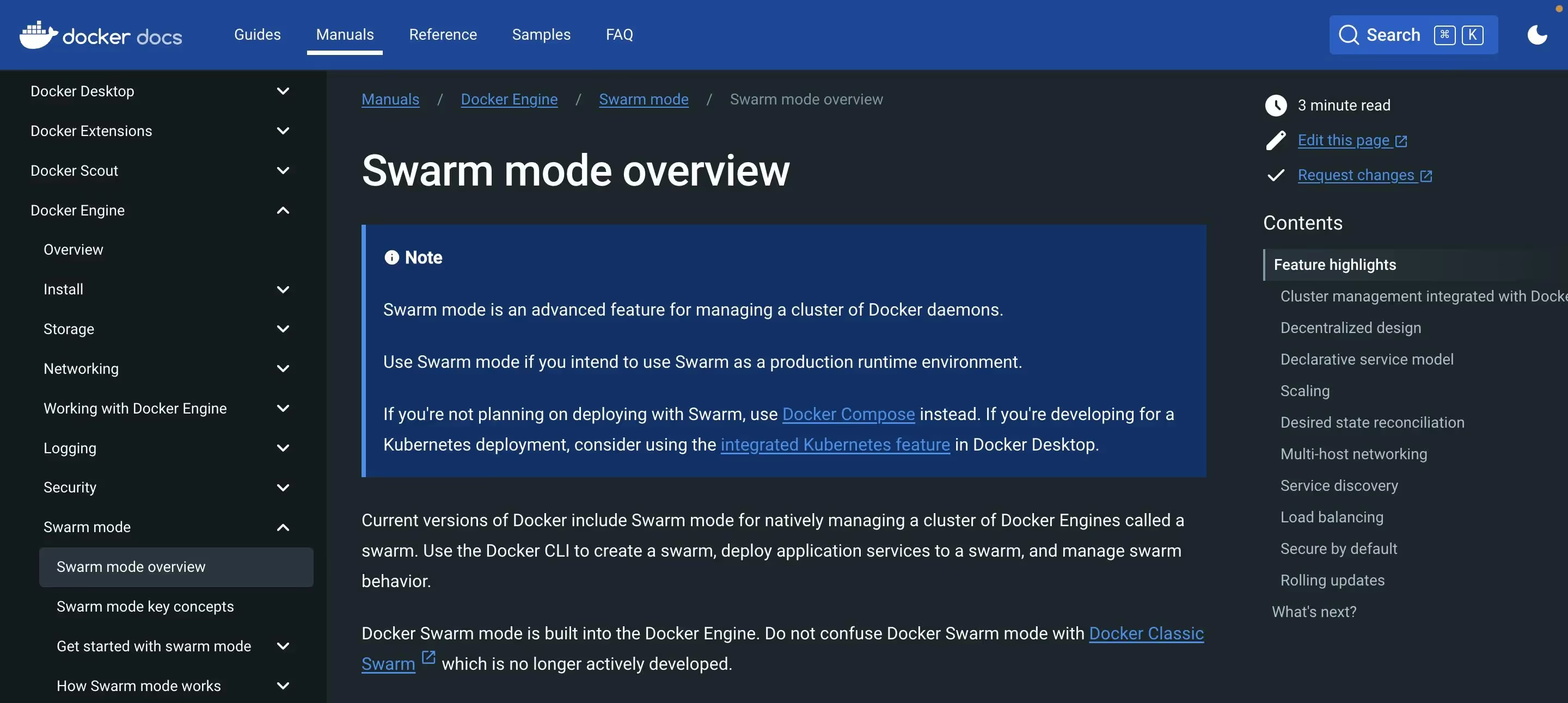
Docker Swarm is the native clustering tool for Docker containers, making it a straightforward option for those already invested in the Docker ecosystem.
Unlike Rancher, which is a more comprehensive container management platform supporting multiple orchestrators, Docker Swarm focuses solely on Docker. It's known for its simplicity and tight integration with Docker, making it a go-to for teams seeking a no-frills approach to container orchestration.
Pros:
- Simple setup and management: Docker Swarm is designed for ease of use, appealing to teams who prefer a straightforward setup without the bells and whistles.
- Native Docker integration: For teams already using Docker, Swarm offers seamless integration, making it an intuitive extension of their existing workflows.
- Efficient load balancing: It automatically distributes container workloads, ensuring efficient use of resources.
- High availability: Docker Swarm provides high availability through its replicated services, ensuring applications run smoothly.
Cons:
- Limited features compared to Rancher: Docker Swarm might fall short for teams looking for advanced features like Rancher's extensive Kubernetes support and richer application catalog.
- Less flexibility: With its focus on Docker, Swarm lacks the flexibility of Rancher in terms of supporting a variety of container tools and platforms.
- Scalability issues: While suitable for smaller setups, Docker Swarm might struggle with the scalability demands of larger, more complex deployments.
- Community support: As Kubernetes gains more traction, Docker Swarm's community support and development might not match the pace of its alternatives.
5. Nomad (Hashicop)
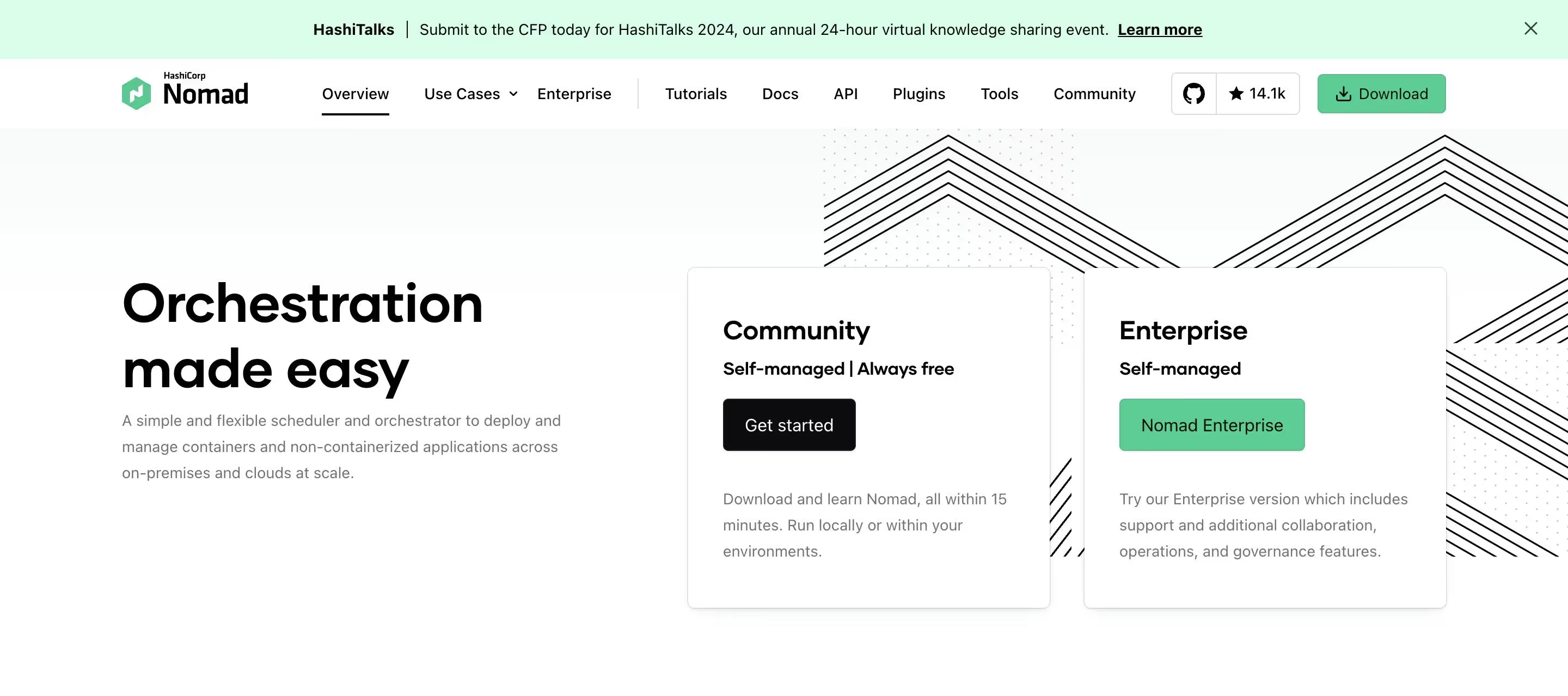
When exploring alternatives to Rancher in the world of container management and orchestration, Nomad emerges as a noteworthy contender. Distinct from Rancher, Nomad is developed by HashiCorp, stands out for its simplicity and flexibility in orchestrating not only containers but also non-containerized applications across multiple cloud and on-premises environments.
It's a single binary that can schedule applications and manage their lifecycle. Nomad's integration with other HashiCorp tools, like Consul for service discovery and Vault for secrets management, further enhances its appeal. This integration provides a cohesive ecosystem for managing both the deployment and runtime aspects of applications.
Pros:
- Simplified operations: Unlike Kubernetes, Nomad’s architecture is less complex, making it easier to operate and manage.
- Flexibility: It supports a variety of workload types, not just Docker containers, which makes it versatile for different application needs.
- Scalability: Nomad is designed to scale to thousands of nodes with minimal operational overhead.
- Integration with HashiCorp suite: Seamless integration with other HashiCorp tools like Vault and Consul adds layers of security and efficiency.
- Multi-Region support: Nomad can run across multiple regions and clouds, providing excellent flexibility for deployment strategies.
Cons:
- Community and ecosystem: While growing, Nomad’s community and ecosystem are not as extensive as Kubernetes', which might affect the availability of third-party tools and integrations.
- Learning curve: For those accustomed to Kubernetes, adapting to Nomad's approach can require a learning phase.
- Feature set: While Nomad is powerful, it might lack some of the more advanced features and customizations offered by Kubernetes and Rancher.
- Less mainstream adoption: Nomad is not as widely adopted as Kubernetes, which can be a consideration for teams looking for widely recognized and supported tools.
Conclusion
If you are looking for an alternative to Rancher, many platforms are available in the market. Each contender carries unique strengths and caters to specific needs. While Rancher stands out with its flexibility and open-source nature, diverse alternatives like Qovery, Portainer, Platform9, and Nomad offer compelling solutions depending on your priorities.

Suggested articles
.webp)



.svg)
.svg)
.svg)


